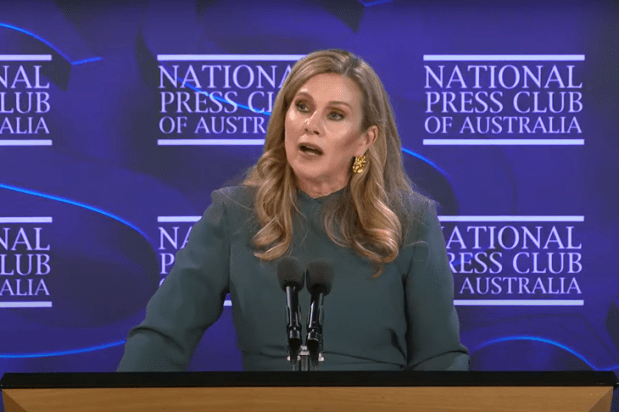There’s an old joke in psychology that when a codependent is dying, they see everyone else’s lives flashing before their eyes – not their own!
It’s a sarcastic jibe that nevertheless reveals one of the key issues at play in the psycho-emotional condition labelled as codependency. More than being a conjoined condition of relational meekness, codependency often manifests in an imbalanced focus on – and compulsion to manage – other peoples’ feelings, predicaments, preferences, and well-being. In truth, it’s a controlling tactic where the controller eventually gets to feel as good as those they’re purportedly looking out for.
Though it first appears as a high-virtue, caring trait – which makes any carer look uber-nice – codependency is one that has a faulty sense of healthy boundaries. If the condition is unrecognised or unchecked, it can take the ‘sufferer’ into all sorts of limitless over-protective scenarios, or see them fail to draw a rational line of reason should they fail to take firm or temporarily unpopular decisions that are actually better for their personal welfare.
I’m not for a second suggesting that uncaring selfishness should become anyone’s modus operandi, but it seems that many in our clamorous society are unwisely attempting to do for others, what they really should be doing for themselves; such as assessing and managing discomfort or deprivation. Worryingly, the phenomenon is gaining popularity in corporations and government agencies and, so, is eroding the likelihood of anyone experiencing lessons from life’s school of hard knocks.
In corporate codependency, we have situations where huge amounts of resources are now spent in creative attempts to humour, mollify, protect, and pander; and it’s the noblest of follies.
Car companies now tell motorists not to drink the acid from their batteries. News stations often warn viewers that bad news segments might be upsetting in numerous ways. Then, we watch the madness of a publisher altering children’s classics after their ‘sensitivity editors’ neuter the edgy, aged text lest some future readers potentially feel hurt or offended by words on a page. Venue managers bow and scrape after being accused of having inadequate stimulus-cancelling facilities for neuro-sensitive attendees at a sensory-overloaded pop concert. Overseas, a government deliberated and prevaricated over whether to permit the jailing of convicted rapists in a women’s prison, after the once-male rapist re-declared their gender identity as female.
All of this on the overprotective premise that everyone’s perspective has to be respected and that no one should experience unease within dynamic social systems which, by nature, will continually present imbalance and unfairness.
Many entities get involved in campaigning and supporting causes that may be marginal or peripheral to their core business. More, many have skilfully turned this codependent caretaking into a silky commercial gossamer; the ‘look how considerate we are’ marketing tactic. Perversely, that’s quite a balanced win-win situation!
One American expert on codependency – the sadly deceased Earnie Larsen – quipped that codependency was the simple failure to understand where you begin and end, and where I begin and end. But, eager-to-people-please entities seem reluctant to draw a line over what is their business, and what is simply not. And when organisations succumb to every plea for special consideration, treatment, or financial recompense, they almost accept a liability for which there may eventually be a big cost to pay. And mug customers, in general, will be the ones to foot the bill for these popularity-courting acts.
Two factors – aside from confusedly co-dependent decision-making – may also be taking organisations into this boundary-less abyss. A belief in the old motto of ’the customer is always right’ plus a fear of bad publicity. In truth, neither of these elements are as true or influential as they once were.
Even early-day psychology students could tell you that no one is always right; certainly not among today’s over-entitled customer base. And even though the media gives anyone with a blog or bugbear a platform to amplify their grudges, the spectre of damaging publicity has surely become less scary when you consider the diffused and diverse nature of how people consume media today, and how readily rogue operators can now recover their reputational mojo in the modern world.
And here’s a kicker; news outlets are in a co-dependently caretaking relationship with the endless discontent of agenda activists, who stoke media scares to secure the public amplification and validation of their grievances.
When entities are led by codependent decision-makers who fear guilt or possible criticism for refusing a request – of firmly saying ‘No, this isn’t our business’ – then we’re surely headed for a disastrous legal, risk, and reputation minefield. If you take time to understand the facets and flaws of codependent relationships, then it is possible to reclaim the craft of simply saying ‘no’ even amid what amounts to Olympic standards of virtue signalling.
Many agencies and companies need stern lessons in setting healthy boundaries; some could start by tightly defining what their core business is, and by not being spooked into caretaking the outrages of every agenda activist, each fuelled by an exceptionally unique clutch of discreet resentments.
Again, this is not a call for a socio-commercial construct that cares less… It’s an advisory that caring too much creates a damaging smothering, which falsely coos that everything’s gonna be alright. Yes, organisations should eradicate practices that are dangerous, unlawful, prejudiced, and predatory for their key stakeholders; but they can’t salve every slighted feeling or discomforting experience. Learning to handle life’s little knocks and processing those icky feelings (including anger) is a valuable skill for any mature citizen to master.
Life is never gonna be totally all right, even for those who seem to have much of the privilege and power. As REM used to remind us, everybody hurts – and it doesn’t always have to be made into a cause célèbre.
It cannot end well when any of us – and surely any organisation – tries to do everything possible to keep everyone else happy. As indicated earlier … that just may be the noblest – and costliest – of codependent follies.

























